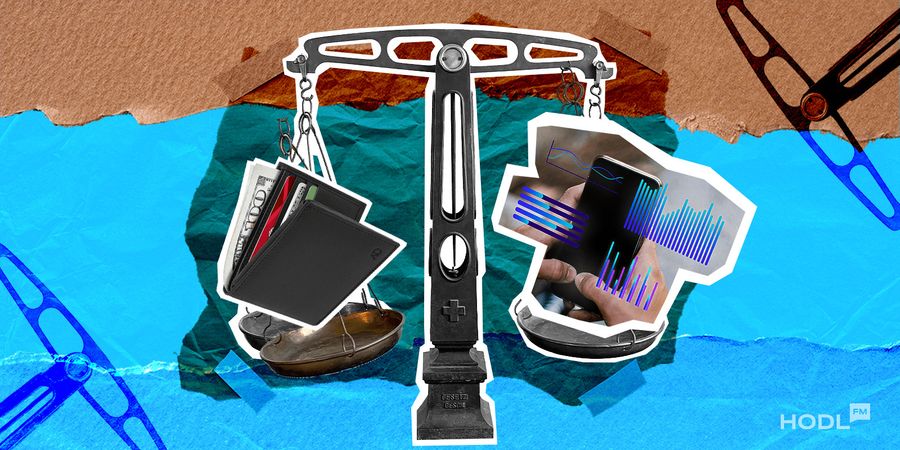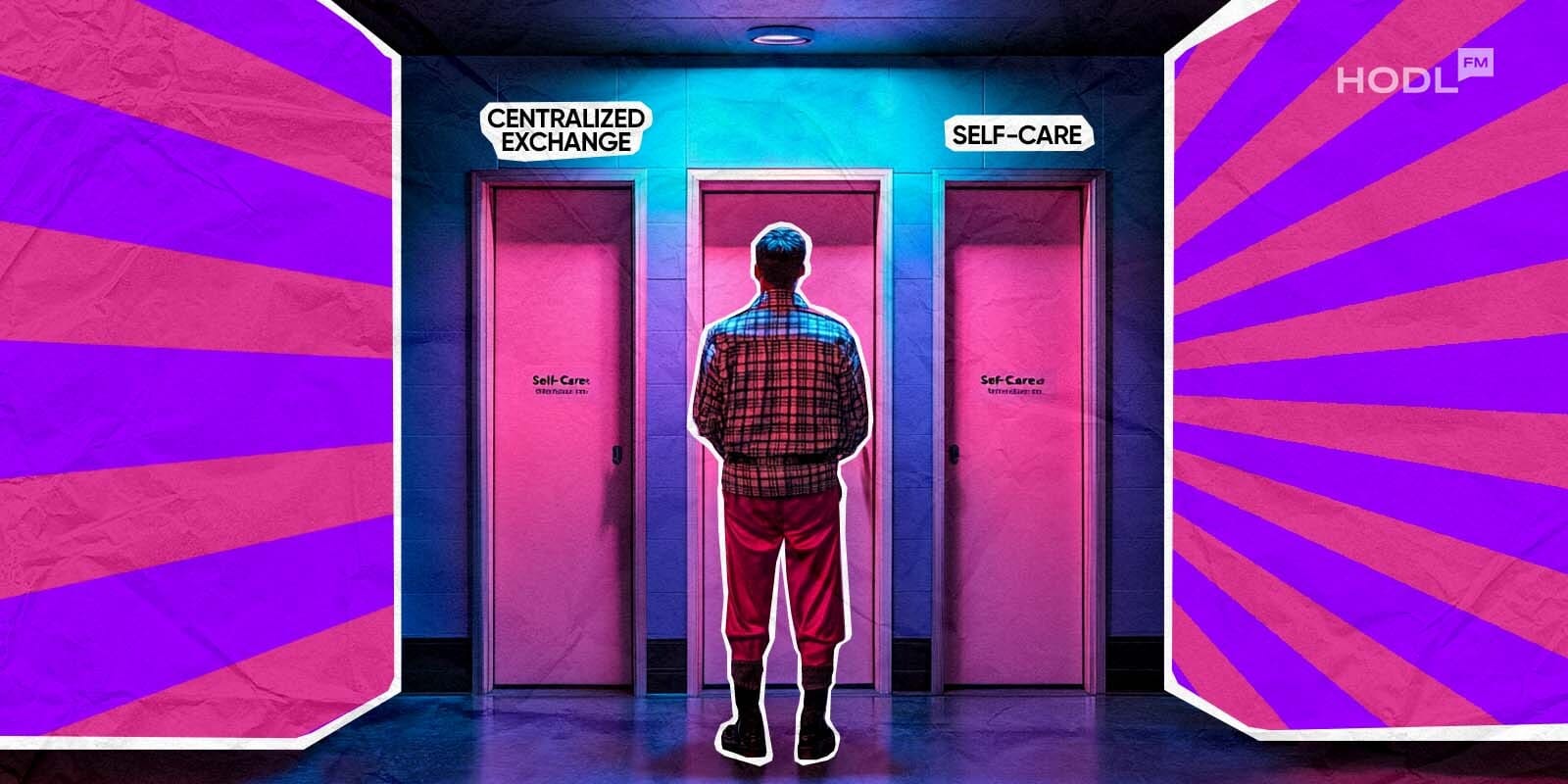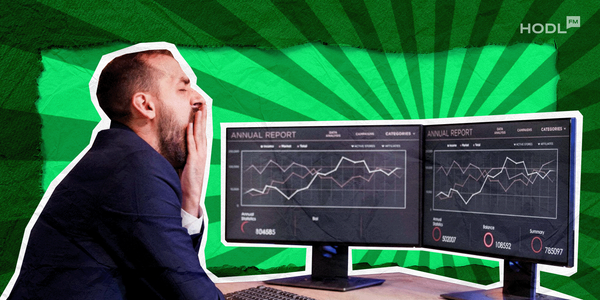2024 has been a year where concerns surrounding cryptocurrency exchanges intensified. Many investors reconsider how they store their precious tokens. Even the most reputed and trusted centralized exchanges, such as Binance and Coinbase, have been criticized for freezing accounts and even seizing assets. The wise saying, “Not your keys, not your tokens" has never been so pronounced in the history of crypto.
More: The Ice Fortress: Your No-Nonsense Guide to Cold Wallets
It is not just the shenanigans in 2024 that led to the mistrust toward CEXes. According to data from 2023, over $3.2 billion in crypto assets were lost due to exchange-related security breaches and mismanagement. Many users have opted to withdraw funds from centralized exchanges, with Q1 2024 seeing a noticeable trend of users migrating their assets to self-custody solutions.
Now let’s make one thing clear. Centralized exchanges remain the most convenient entrance point to crypto for beginners. Most of the shenanigans associated with them can fly under the radar on a global scale, but when the controversy involves a conflict upon which the whole world’s eyes are fixed, it is hard not to hit the headlines.
The story below is here for pure news value, meaning we don’t intend to speculate but solely wish to contextualize the growing distrust toward exchanges.
Binance Under Scrutiny
In August 2024, Binance faced horrible backlash due to allegations that it froze Palestinian users’ accounts at the request of the Israel Defense Forces (IDF). Ray Youssef, co-founder of the peer-to-peer platform Noones, claimed that Binance seized all funds belonging to Palestinian users and sparked outrage across the crypto community.
Crypto platform Binance has seized the crypto assets of all Palestinians on Israel’s request.
— Tiberius (@ecomarxi) August 28, 2024
Remove your assets from Binance *AS SOON AS POSSIBLE* as they will never be safe on a platform that colludes with a fascist regime. pic.twitter.com/pTcwBJcaNp
These allegations intensified calls for a boycott of Binance, with users withdrawing over $2.6 billion from the platform in the following days. Binance's CEO, Richard Teng, dismissed the claims as "FUD" (Fear, Uncertainty, and Doubt). “Only a limited number of accounts linked to illicit activities were blocked, not all Palestinian accounts,” he said.
FUD. Only a limited number of user accounts, linked to illicit funds, were blocked from transacting. There have been some incorrect statements about this.
— Richard Teng (@_RichardTeng) August 28, 2024
As a global crypto exchange, we comply with internationally accepted anti-money laundering legislation, just like any other…
This incident was actually part of a larger trend: centralized exchanges getting roasted for complying with government orders, especially in politically sensitive areas. Binance has been cooperating with international law enforcement for years, but these recent decisions have raised concerns about user privacy and the autonomy of cryptocurrency exchanges.
The reaction across the crypto community was swift and serious. How serious? Calls for a boycott of Binance and a large-scale withdrawal of over $2.6 billion funds from the platform.
Ok here is video proof from a Palestinian.
— Ray Youssef (@ray_noOnes) August 27, 2024
This is 100% confirmed. Israel is putting massive pressure on Binance and all other exchanges to blanket seize the funds of ALL Palestinians. The document in the original post has 500 names but there have been many such versions of it… pic.twitter.com/p3eoFOvgXR
Now that more users questioning whether exchanges like Binance can truly uphold the decentralized nature of cryptocurrency, the controversy is reinforcing the mantra “not your keys, not your coins.” The users turn to self-custody, which means the practice of managing and safeguarding one's own private keys, thus maintaining direct control over cryptocurrency. Should you also do it? Any degen will say you should, but we want you to make your own decision.
Software Wallets are digital wallets that store private keys on the user’s device. Hardware Wallets are considered a more secure option, as they store private keys offline, minimizing exposure to hackers.
Are those solutions risk-free? Absolutely not.
Risks of Self-Custody
We will let the stories speak for themselves. In 2018, one of the most popular software wallets, Electrum, suffered a phishing attack where hackers tricked users into downloading malicious updates. They stole $25 million in Bitcoin.
In 2020, Ledger, the most well-known hardware wallet, experienced a data breach where customer information was exposed, leading to phishing attacks. Although the breach didn’t directly affect the wallets themselves, users' sensitive data was compromised.
Not your keys 🔑 not your cheese 🧀. Just transferred another .1 BTC from Coinbase to Ledger. Self custody is the only way. Get your coins off exchanges and into your cold wallet. Or if you’re feeling froggy🐸 send your coins to my cold wallet 😎🤙 pic.twitter.com/WKIJXrJu7y
— Daniel Jenks (@Dj3nks) September 14, 2024
James Howells famously lost a hard drive containing 7,500 Bitcoins. That equals more than $440 million in September 2024. The paper wallet, if not destroyed, is somewhere in a landfill.
The history of web3 is filled with horror stories like these. Some of them are related to user mistakes, whilst others are the results of poor security of service providers. Nonetheless, the top self-custody solutions are battle-tested and are trusted by thousands, if not millions of users worldwide. Here are some of the pioneering self-custody solutions you can consider.
Advantages of Self-Custody
It’s not all doom and gloom. Having full control (and full responsibility) of your crypto has many advantages. Unlike centralized exchanges, self-custody allows you to retain full control over your private keys and, consequently, their assets. The risk of account freezes or funds being confiscated, as seen in cases like the 2024 Binance-Palestinian asset freeze, is eliminated.
With self-custody, you are not reliant on intermediaries, making it less likely to be affected by platform outages, regulatory changes, or hacking incidents targeting exchanges.
Additionally, some self-custody solutions, provide offline storage that minimizes exposure to internet-based hacking attempts. The growing popularity of hardware wallets following the collapse of major exchanges like FTX in 2022 is not a coincidence.
Scenes from "Black Monday"
— The Bitcoin Way (@Thebitcoinway_) September 18, 2024
The 1987 market crash that wiped out $1.7 Trillion 💥
When it all falls down again, who you gonna call?
Ideally nobody, because you already have #bitcoin in self-custody ⚔️ pic.twitter.com/at8Rq194ur
While it requires a greater responsibility on your part to securely manage your private keys, the ability to retain complete control over one’s assets makes self-custody a highly valuable approach for prioritizing both privacy and security in the cryptocurrency ecosystem.
"Not your keys, not your tokens" has become a guiding principle for those seeking to safeguard their crypto. By embracing self-custody solutions, you can take ownership of your funds and reduce the risks associated with exchange-controlled wallets. However, it's important to know that self-custody is not risk-free. In most cases, losing access to private keys means losing access to the funds stored within those wallets. You should carefully evaluate your chosen method of self-custody, and make sure you are comfortable with the responsibility that comes with full ownership.

Disclaimer: All materials on this site are for informational purposes only. None of the material should be interpreted as investment advice. Please note that despite the nature of much of the material created and hosted on this website, HODL FM is not a financial reference resource and the opinions of authors and other contributors are their own and should not be taken as financial advice. If you require advice of this sort, HODL FM strongly recommends contacting a qualified industry professional.





